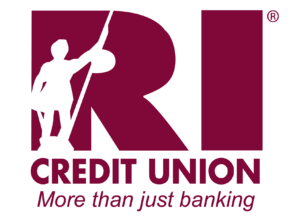In general, you can visit our website without disclosing to us who you are or revealing any information about yourself. There are some areas that will collect certain information about you and it is important for you to know how we use this information. When you visit our website, we collect and store information on the Internet domain and address you use to access our website, the date and time you access our site, and the pages you visit. This information is used solely for the purposes of creating site activity and statistical reports. These reports enable us to improve the usefulness of our site and to better serve our membership.
COOKIES
Cookies are small text files placed on your computer while visiting certain sites on the Internet. Cookies help websites keep track of personal preferences and recognize return visitors. An example of the use of cookies is when sites greet you personally or post a list of what you most recently purchased.
Rhode Island Credit Union uses cookies to enrich your online experience and we may place a temporary cookie on your computer to see which product pages you viewed most frequently. The cookies are not used to collect or store information on you, but to deliver targeted content to you online.
You can prevent cookies from being placed on your computer by accessing your browser’s preferences menu and deleting existing cookies. There also are commercial programs available to help you manage or disable cookies.
GOOGLE ANALYTICS
We use a tool called “Google Analytics” to collect information about use of this site. We have implemented the Google Analytics Demographics and Interest Reporting feature. This feature consists of a series of reports where we can see behavior information relating to visitor age, gender and interests. This data can also be used to segment standard reports and create remarketing lists. Visitors can opt-out of Google Analytics for Display Advertising and customize Google Display Network ads using the Ads Settings (www.google.com/settings/ads).
EMAIL
When you email us, we collect and store personal information to process your email request. Users of this site should understand that any personal information that is voluntarily sent via an unsecured email form might be collected and used by others. Please do not include your account number, your Social Security number, your personal identification number (PIN), your password or any other confidential information in your email requests to Rhode Island Credit Union. Secured forms and applications are available on our website to contact us and to apply for various services and loans online.
PROTECTION
Rhode Island Credit Union utilizes passwords, 256-bit encryption, and firewalls to keep your account information secure and private when you use our online banking service. For your protection, be sure to always log off online banking when you are done using it.
Other safe computing practices you may want to consider include:
- Installing virus detection software.
- Performing regular backups.
- Acquiring a home firewall especially if you utilize a DSL or cable modem connection to the Internet and leave your computer on all the time.
- Password protecting sensitive files on your computer.
WHAT YOU CAN DO TO HELP
Rhode Island Credit Union recommends that you take the following precautions to guard against the disclosure and unauthorized use of your personal and account information:
- Protect your account numbers, plastic card numbers, PINs (personal identification numbers) and passwords. Never keep your PIN with your card, which can provide free access to your accounts if your card is lost or stolen.
- Never provide personal information (including full Social Security numbers or account and credit card information) over the phone unless you have initiated the call and know with whom you are speaking. If someone calls you explaining the call is on behalf of the Credit Union, you should beware. Credit Union staff will have access to this information and will not need to ask for it.
- Notify us immediately if your ATM, credit or debit card has been lost or stolen. Also notify us immediately if your checks have been lost or stolen.
- Keep your information with us current. Be sure to notify us if your address or phone number changes, so we know how to reach you.
ONLINE ACCOUNTS AND PASSWORD SAFETY
As you are probably well aware, billions of user names and passwords have been stolen just this year by skilled hackers. Consumers are urged to be more vigilant online. Because people tend to use the same password on multiple sites, when a breach occurs, it can have major repercussions.
You can’t completely protect yourself from hackers but you can limit your exposure by following some simple steps:
Mix it up. Choose passwords that are long and complex typically 10 characters or longer with uppercase letters, lowercase letters, symbols and numbers.
Be more creative. Use a unique password for each account.
Split social media and money. Do not use the same password for credit cards and bank accounts that you use for social media or websites.
Revise record-keeping. Don’t store your account information in an unsecured document on your computer or network.
Keep data close. Don’t share your password, even with friends and family.
Stay informed. Beyond changing passwords and creating better ones, stay informed as the details of a breach become released.
If you have any weak or duplicate passwords anywhere, you should change them as soon as possible. Also consider regularly auditing and updating not just your passwords, but your computer security as well. After all of that, enjoy the peace of mind that you’re doing the best you can to protect yourself.





